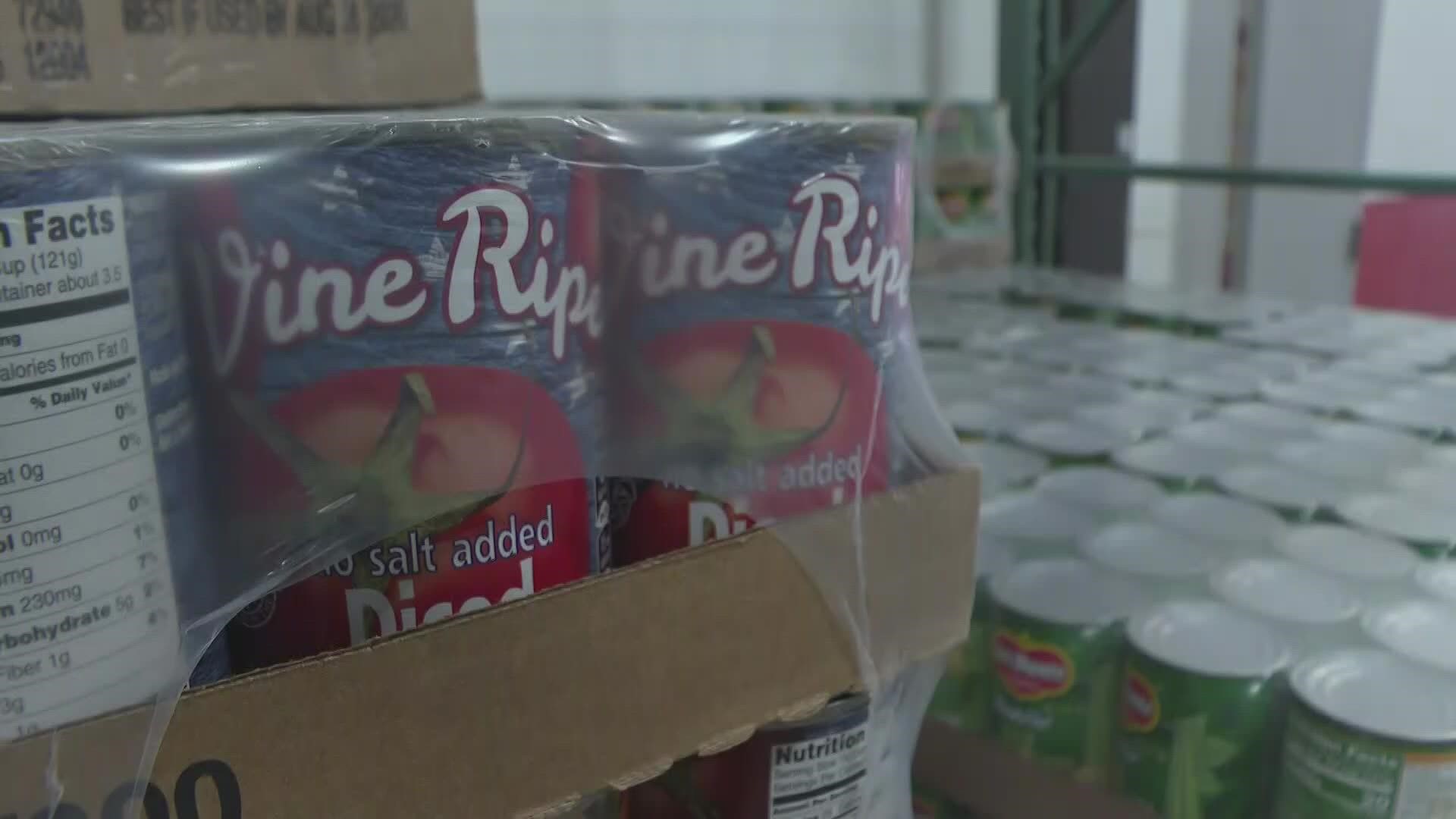AUGUSTA, Maine —
A new state report says Maine continues to have a real problem with hunger, and households not having enough food. The study was ordered by the Maine Legislature and led by the Maine Department of Agriculture, Conservation, and Forestry.
It says food insecurity is more severe among single parents, immigrants, and people of color. And it calls for strong action to end hunger over the next eight years.
“When most recently measured, one in eight Mainers and one in five Maine children were hungry or at risk for hunger,” the report said. “That is a breathtaking level of suffering.”
Now, the state legislature is being asked to get the plan started to eradicate food insecurity and achieve a rate of only 4% low food security.
The report, “Everyone At The Table,” has just been released in draft form. Calling hunger an “often invisible epidemic,” the plan aims to end hunger in Maine by 2030 and said this goal “is very well within reach.”
The first step is to make sure all Mainers “have easy, consistent access to healthy and culturally appropriate food” by ensuring the state maximizes the use of federal nutrition programs.
In the longer term, though, the plan calls on the state to “address the economic and cultural conditions” that sometimes trap people in poverty.
Rep. Bill Pluecker, I-Warren, is a farmer and a state legislator. He said he sees Maine’s hunger problem through multiple perspectives and admitted that solving the problem will be a challenge.
Pluecker was one of many members of a task force, assembled by the Maine Department of Agriculture, Conservation, and Forestry, which worked for the past two years to develop a plan for eliminating hunger and food insecurity in Maine.
Pluecker has a bill in front of the committee to move the plan forward by assigning it to Gov. Janet Mills' Office of Policy, Innovation, and the Future for implementation.
A major conclusion of the study, according to Pluecker and Anna Korsen of the group Full Plates, Full Potential, is that hunger is a result of poverty, not simply a lack of available food. The economics of poverty, they said, cause multiple difficulties for low-income Mainers, many of which contribute to food insecurity.
“It's really getting at not only the immediate solutions to food insecurity across the state, like accessing food programs such as SNAP,” Korsen said. “But also this big, important step of addressing the systemic root causes of food insecurity. Housing, employment, local food systems, and other factors that lead people to food insecurity.”
“We know at Full Plates, Full Potential we are working to end childhood hunger in Maine,” Korsen added. “But to truly end hunger in Maine you have to address the root causes of poverty and the narrative around poverty and food insecurity."
Korsen said it's important to remove blame from the equation and focus on addressing the systemic causes.
Pluecker agreed the full proposal represents major changes for how Maine addresses those problems.
“Trying to change the way the state works so everyone has the food they need would be changing fundamental things in our state,” the lawmaker said.
But he also said it won’t all need to happen at once.
“The resolve passed by the 129th Legislature did say the intent was to end hunger by 2030," Pluecker said. "At this moment that is still our intent to end hunger by 2030, and this bill is the first clear effort to move toward ending hunger by 2030.”
The legislative committee is still reviewing the draft of the study report and indicated it will work over the coming two months of the session to develop clear guidelines for what the governor’s staff should pursue to implement it.
At Tuesday’s public hearing on Pluecker’s bill, lawmakers heard from representatives of many advocacy groups who were also involved in the study, each saying how important the issue is to their constituency.

